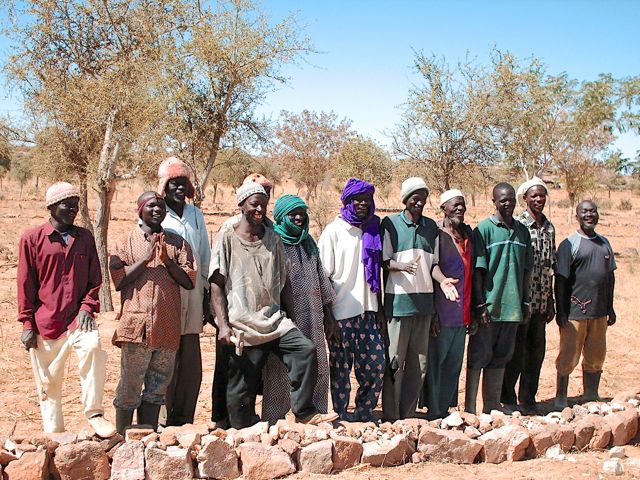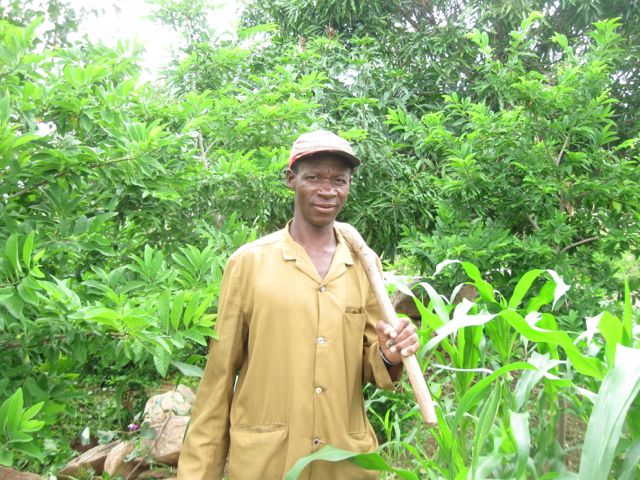Food Security
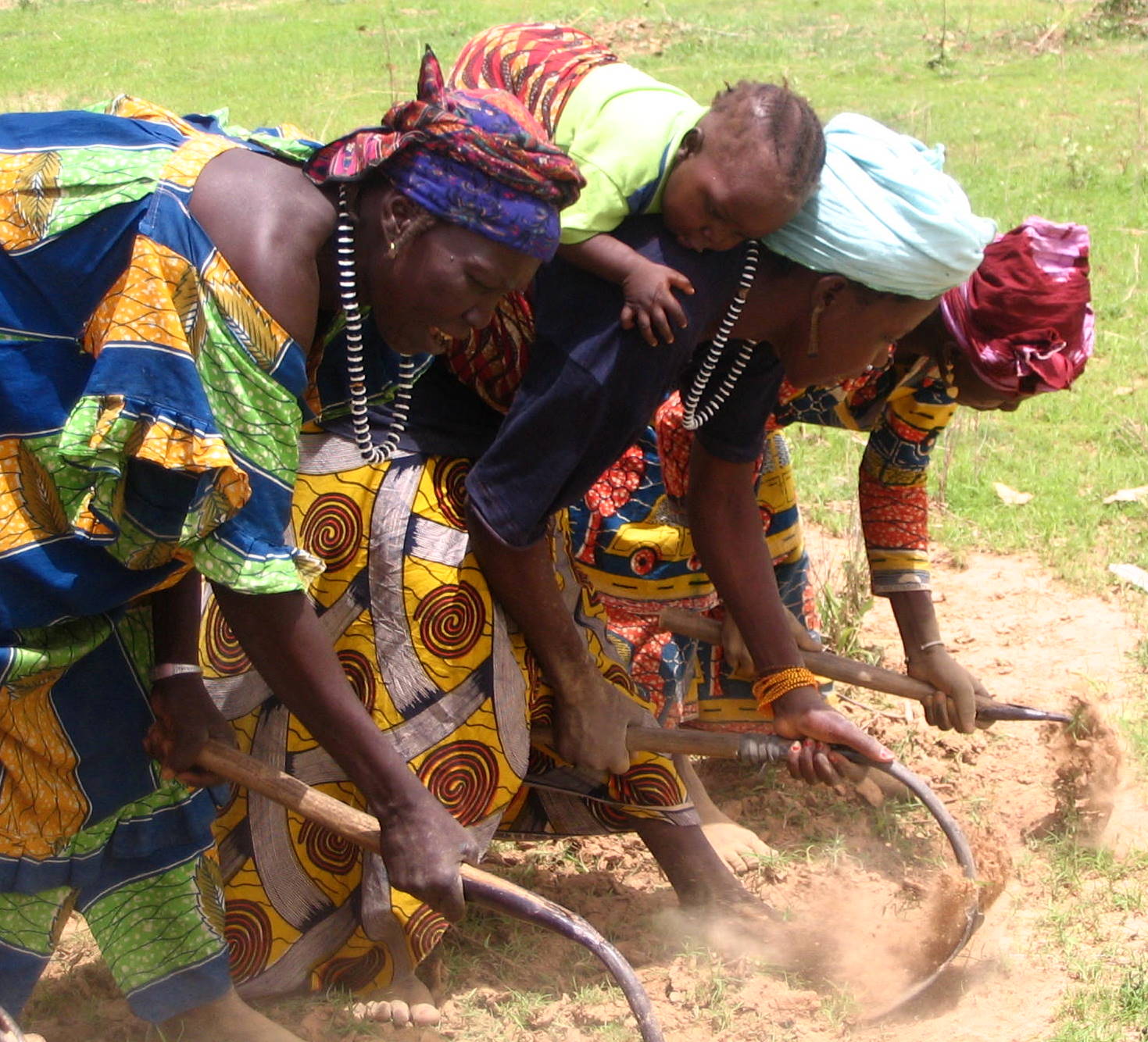
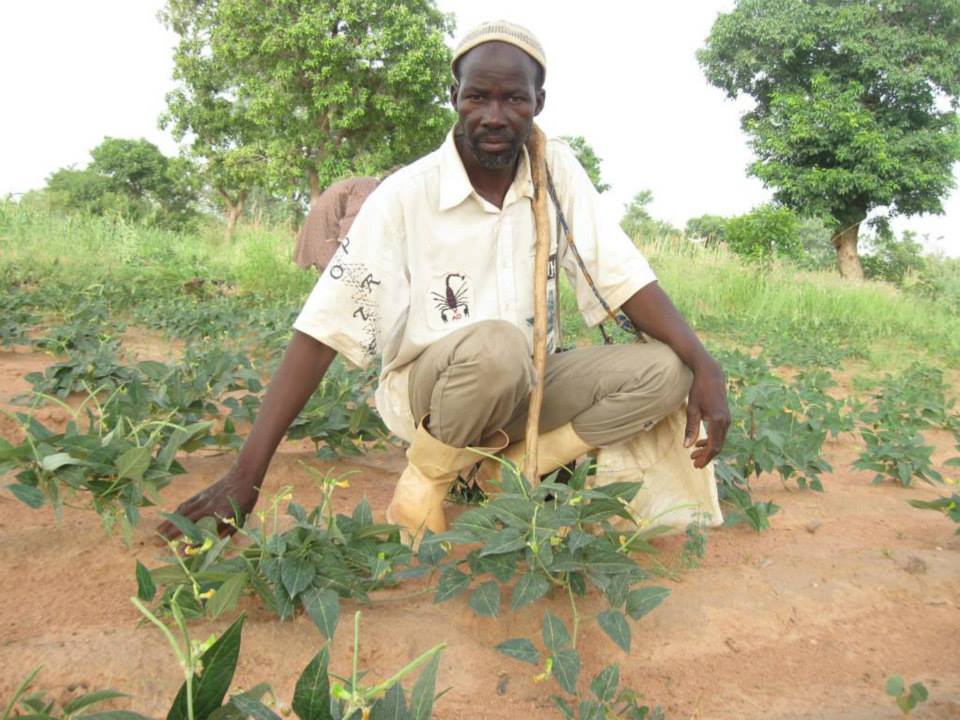
In Mali's Bandiagara District, food security is a major concern. Community members work hard, farming millet, peanuts, sorghum, cowpeas, and other crops, and yet decreasing rainfall and increasing pest problems have caused harvests to diminish. In most years, most families cannot harvest enough food to last them through the year until the next harvest. Cash income is very difficult to come by in the villages, so young people must then go to the cities to look for work and send money home so their families can purchase food. This exodus separates family members from each other, in addition to exposing the migrants to hazards and hardships of metropolitan life and diminishing the vitality of cultural life in the villages.
Villages in the area have proposed several solutions to the problem of food insecurity, including grain banks, gardens and orchards, and agricultural innovations, including anti-erosion dikes, improved crop varieties and natural regeneration of trees in the fields. Tandana is pleased to support these important initiatives that help villages provide for more of their food needs.
In highland Ecuador, quantity of food is not as great a concern, but nutritional value and variety can be issues. We have supported a number of schools and communities in creating or improving nutritional gardens.
School and Community Gardens
Kilegou, Mali
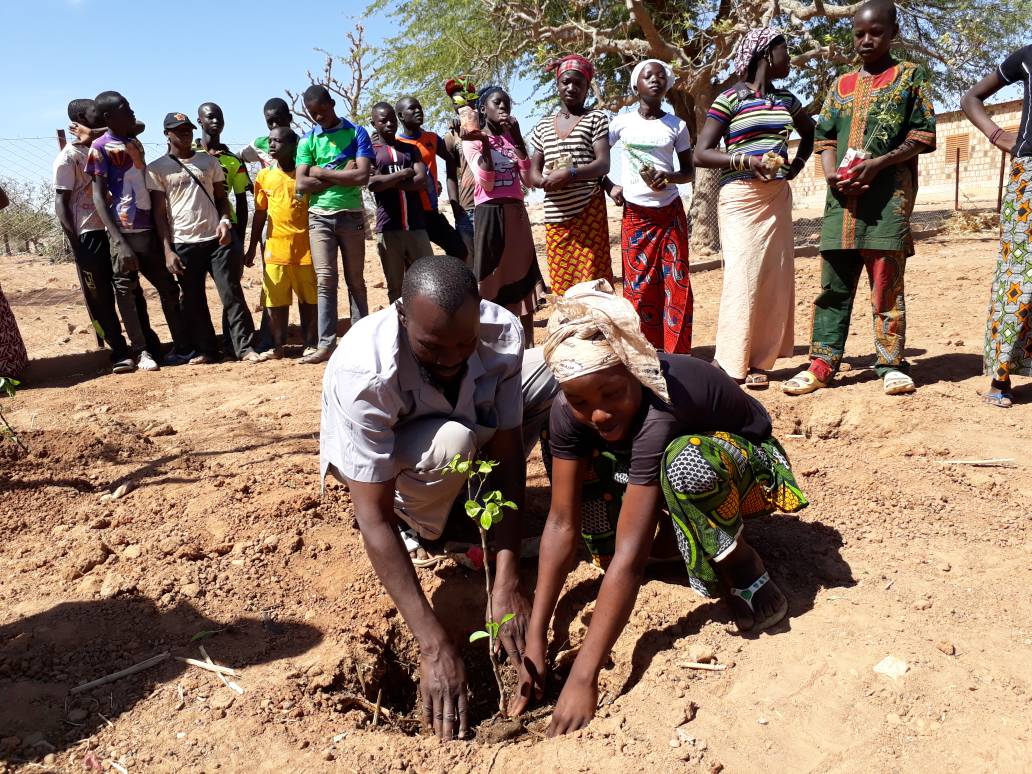

In April 2018, after watching the success of other school gardens in the area, the residents of Kilegou decided that they wanted to create a school garden of their own. The students are now growing many vegetables, some of which they sell to earn money for their notebooks, pens, and other school supplies. Tandana supported their efforts with a fence, tools, training, seeds, and water containers. Jeremie Tembiné, the director, is very excited about the educational opportunities that the garden affords, explaining that his students gain a much better understanding of biology though working hands-on with plants in the garden.
De, Mali
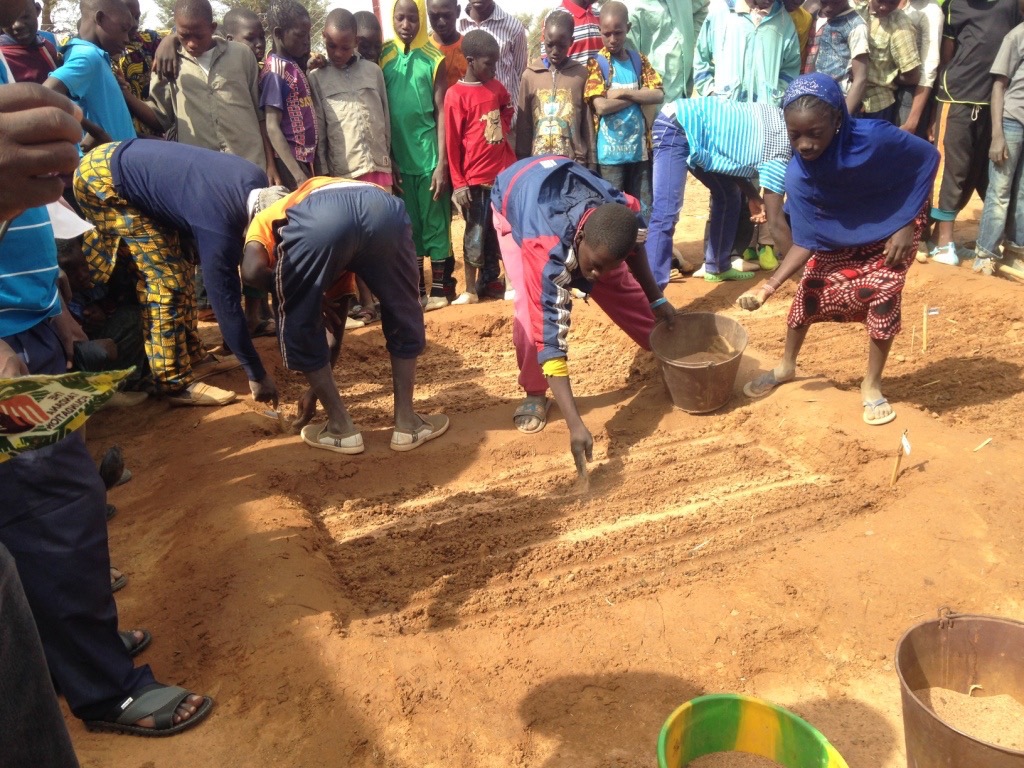
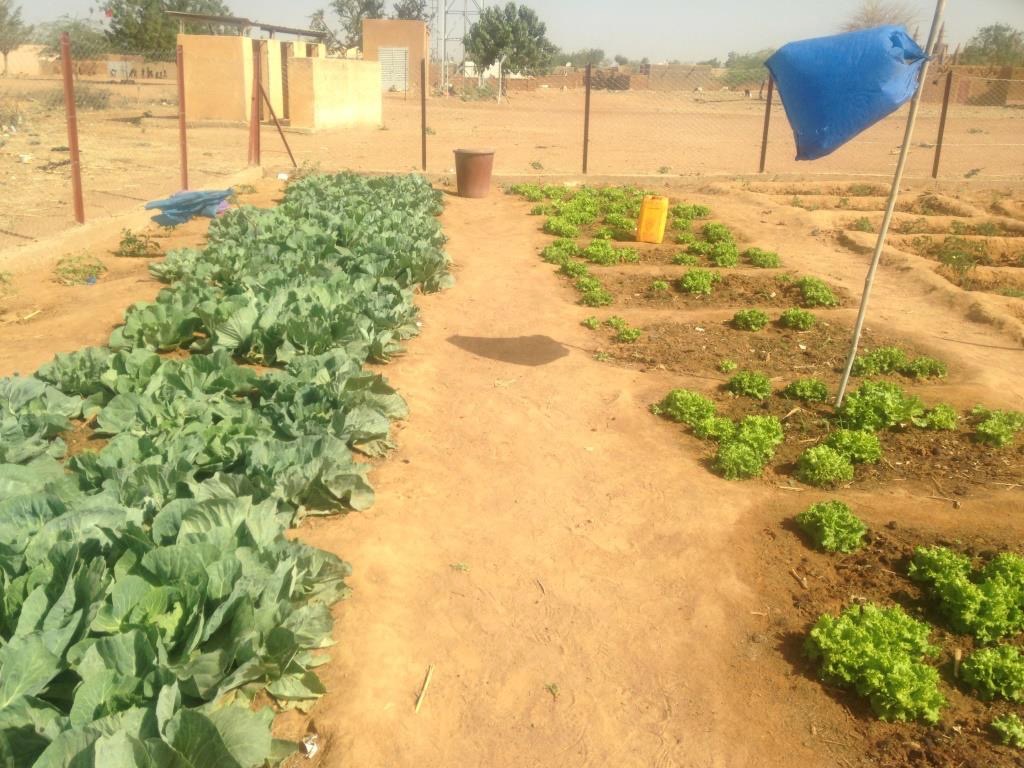
Kaleb Poudiougou, director of the Second Cycle (7th-9th grades) in De, Mali wanted his students to learn about gardening and also realize that they could earn money for school supplies they need. Tandana helped make this dream a reality. The students and teachers now grow vegetables, such as tomatoes, squash, lettuce, peppers, eggplants, etc., and then the students sell the produce to earn money to buy school supplies. Tandana also provided tools, seeds, and training for the teachers, students, and parents association representatives.
Yarou Plateau, Mali
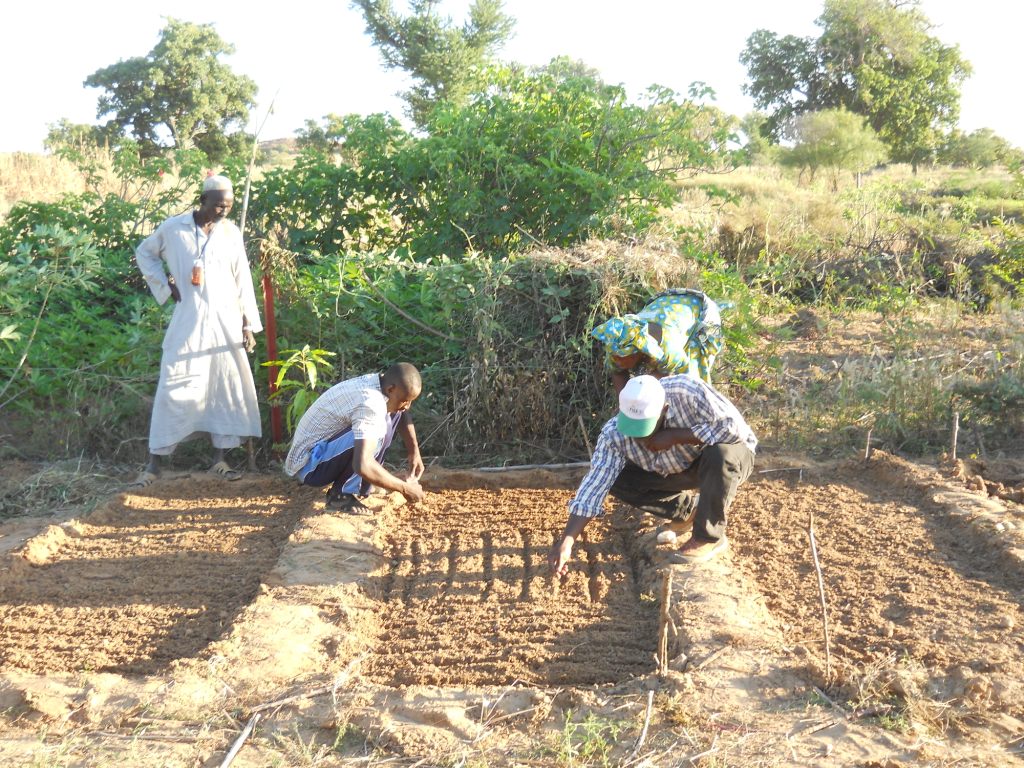
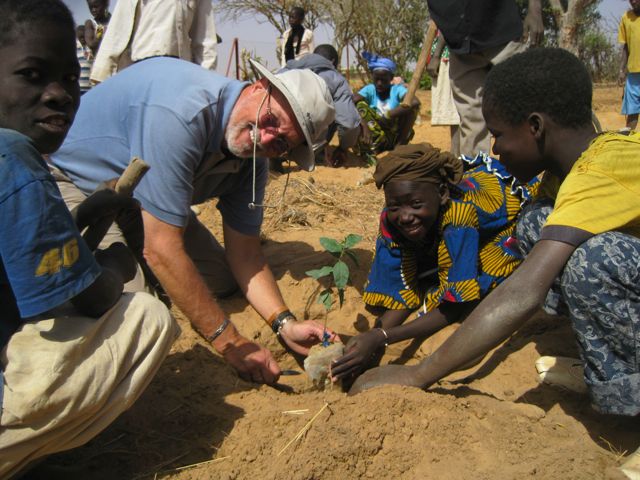
The students, parents, and school director in Yarou Plateau, Mali decided to create a school garden so that the students could learn about gardening, make more fruits and vegetables available in the village, and earn money to buy school supplies. The first garden they created was protected by a thorny wood fence and far from the well they used to irrigate it. Animals would periodically break-in and ravage the garden. So, with the help of The Tandana Foundation, they moved the garden close to the water source, expanded it, and protected it with a sturdy chain-link fence. Now, not only are the children growing vegetables to sell but there is also room for village women to have their own protected plots. Our 2011 Mali Volunteer Venture group helped the students plant mango trees in the garden so that one day they will also benefit from those delicious fruits.
Kansongho, Mali
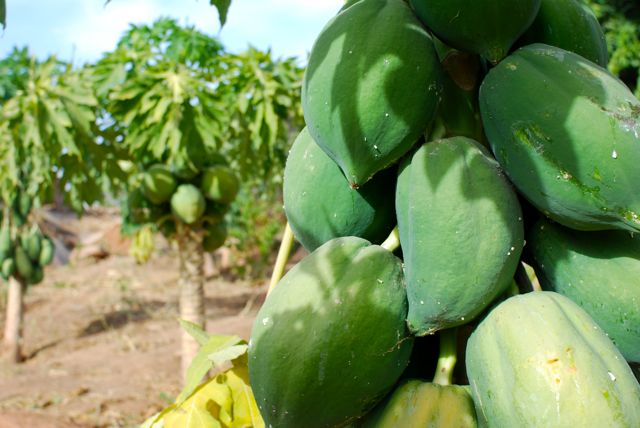

A few years later, with help from a government service, the village was able to acquire another borehole near the orchard, and as soon as Tandana could help them build a fence, they were ready to garden, using the new water source to irrigate vegetables year-round. To make the irrigation efficient and feasible, they requested assistance building a water tower and acquiring a solar pump. Now, the water is gravity fed to basins throughout the garden, and each person can easily water his or her plot.
Kori-Maounde, Mali
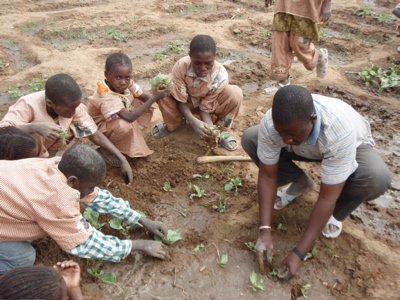
Daniel Dolo, the director of the school in the village of Kori-Maounde, Mali, came up with the idea of creating a school garden so that he could teach his students about gardening, and at the same time, they could earn money to buy educational materials by selling the produce. Because the school area is frequented by livestock that seek any edible greenery in the arid landscape, a sturdy fence was necessary to make a garden possible. The Tandana Foundation provided funds to build the fence. Daniel and his students planted beets, lettuce, cabbage, sweet potatoes, green beans, cucumbers, watermelons, eggplants, banana trees, mango trees, papaya trees, and avocado trees. The children take turns watering, using water pumped from the nearby well. They are excited about their garden and have elected students to be treasurer, secretary, and salesman.
 Women Worldwide and Adventures in Rock donated money to buy fruit trees and tools for the garden and to build a watering basin. They also organized a group of volunteers who traveled to Mali to help. In January 2009, volunteers, community members, and children planted 54 fruit trees, dug a trench, laid a pipe, and created the watering basin, so that the children can water the trees more easily. These improvements greatly enhanced the garden's productivity and ability to provide for the students' needs. We have also provided training in how to care for the trees, and most recently, a motorized pump to facilitate watering.
Women Worldwide and Adventures in Rock donated money to buy fruit trees and tools for the garden and to build a watering basin. They also organized a group of volunteers who traveled to Mali to help. In January 2009, volunteers, community members, and children planted 54 fruit trees, dug a trench, laid a pipe, and created the watering basin, so that the children can water the trees more easily. These improvements greatly enhanced the garden's productivity and ability to provide for the students' needs. We have also provided training in how to care for the trees, and most recently, a motorized pump to facilitate watering.
Amayowo School Garden, Mali
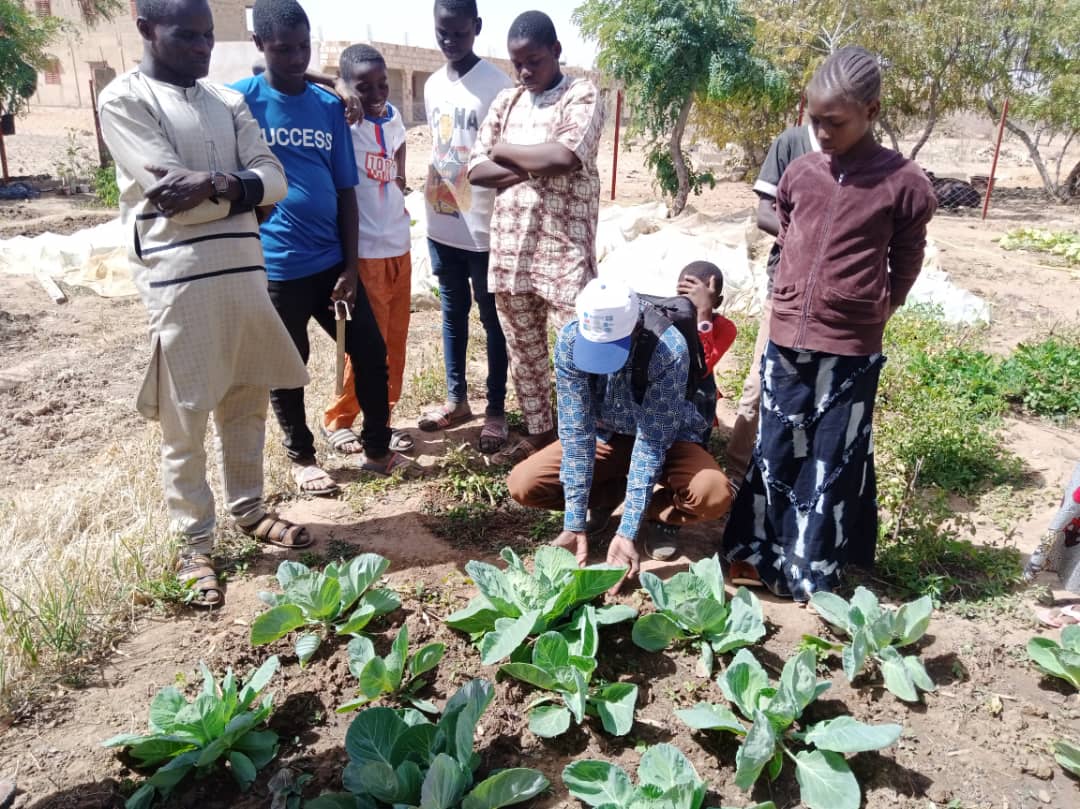
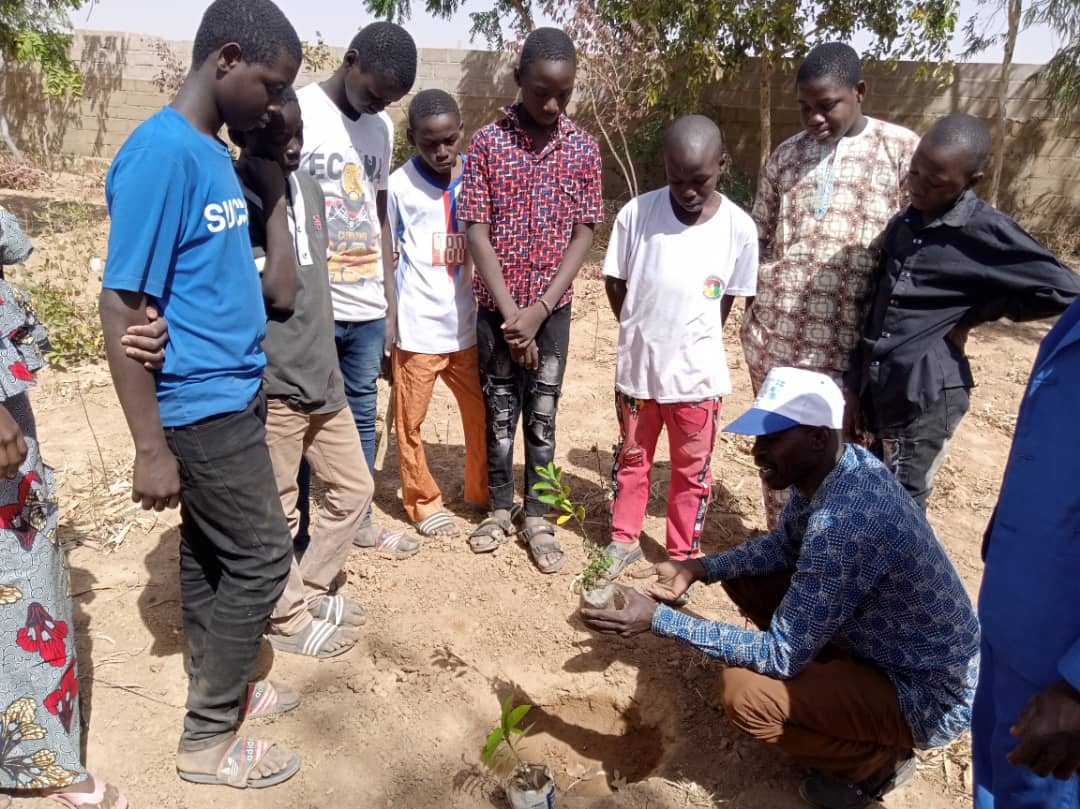
Tandana now supports school gardens in Amayowo within Bandiagara.
Andjine School Garden, Mali
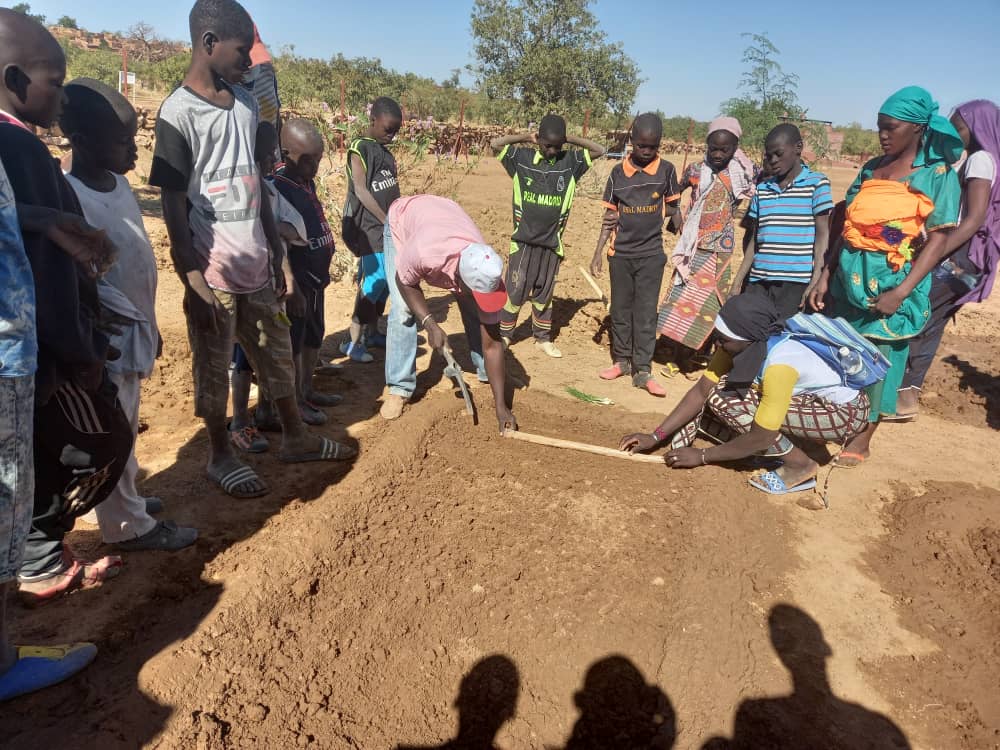

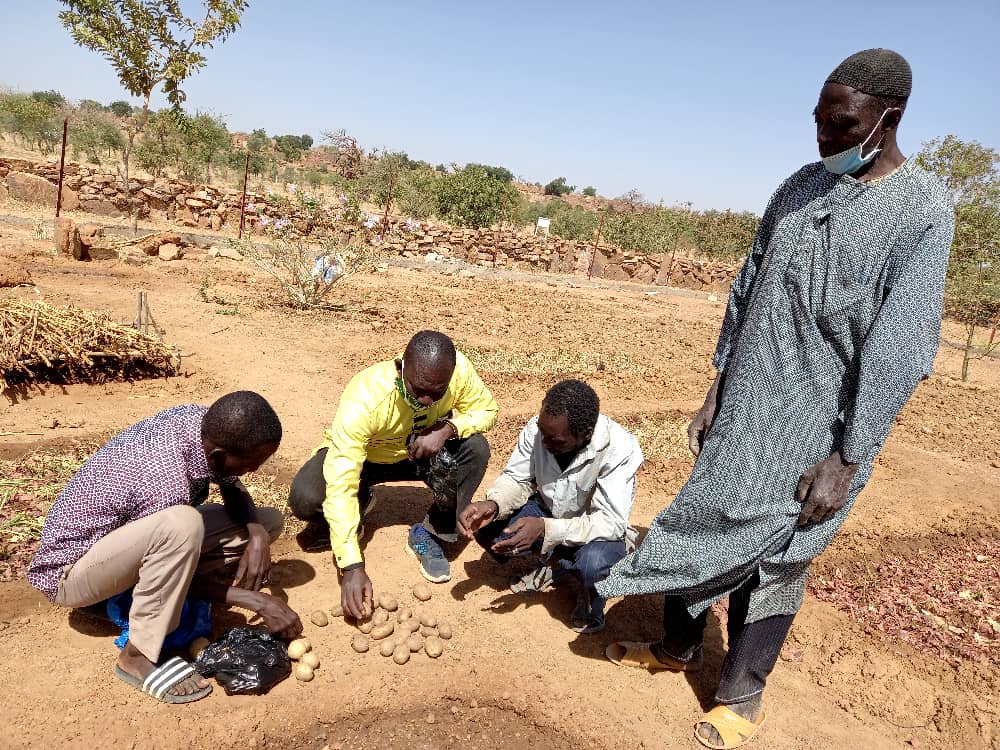
Tandana now supports school gardens in Andjine.
Baragnole School Garden, Mali
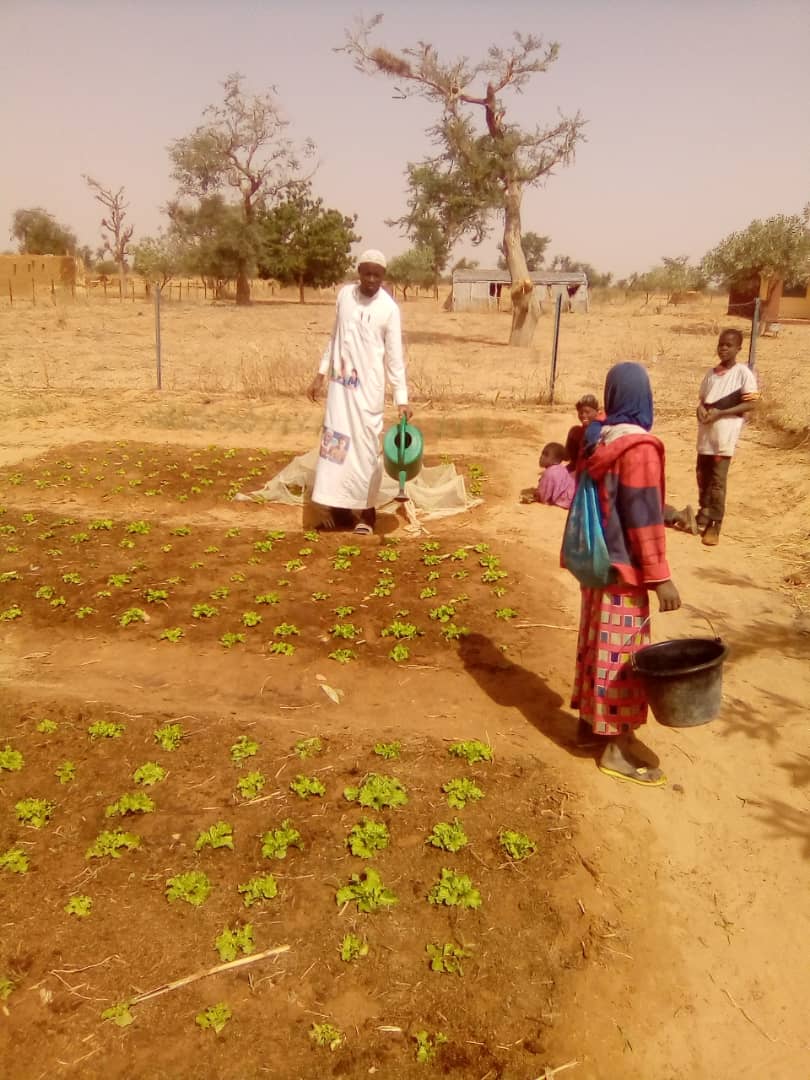

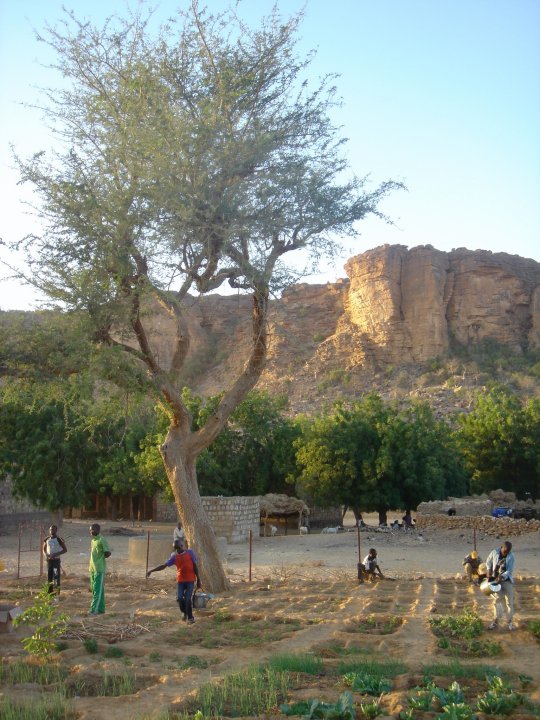
Tandana now supports school gardens in Baragnole.
Nalou School Garden, Mali

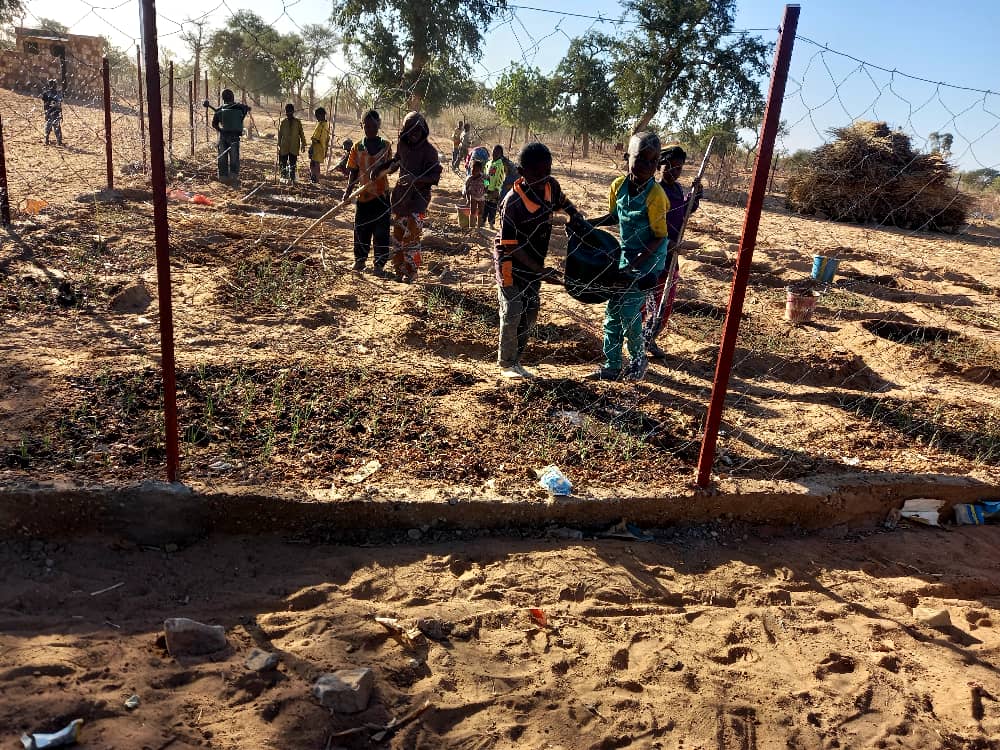

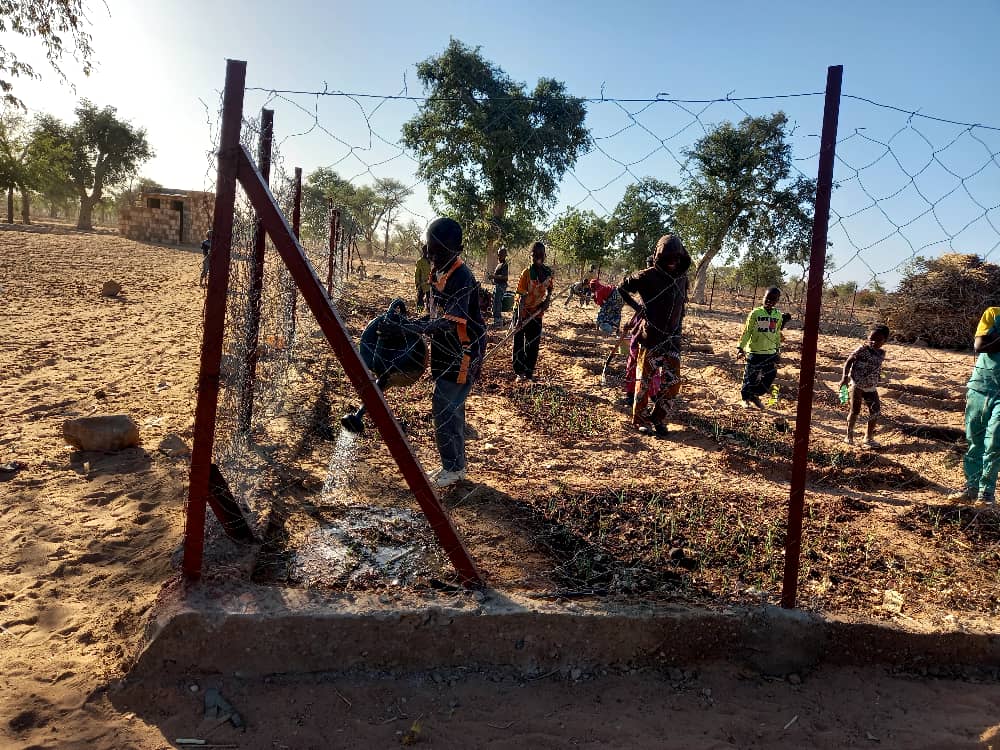
Tandana now supports school gardens in Nalou.
Ondogou School Garden, Mali
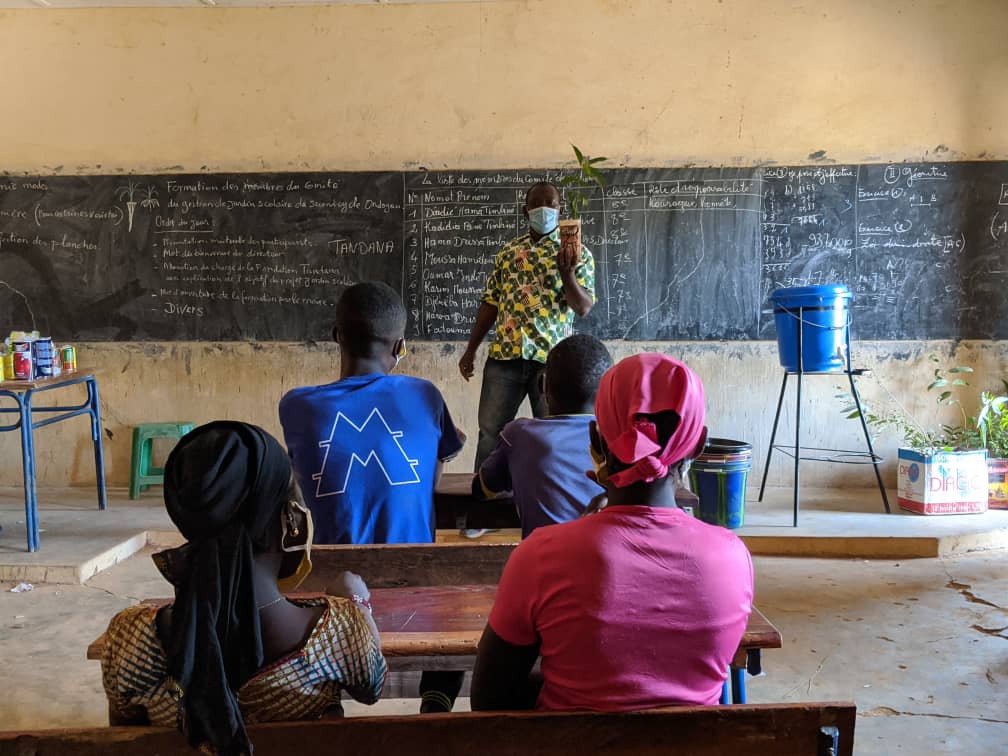
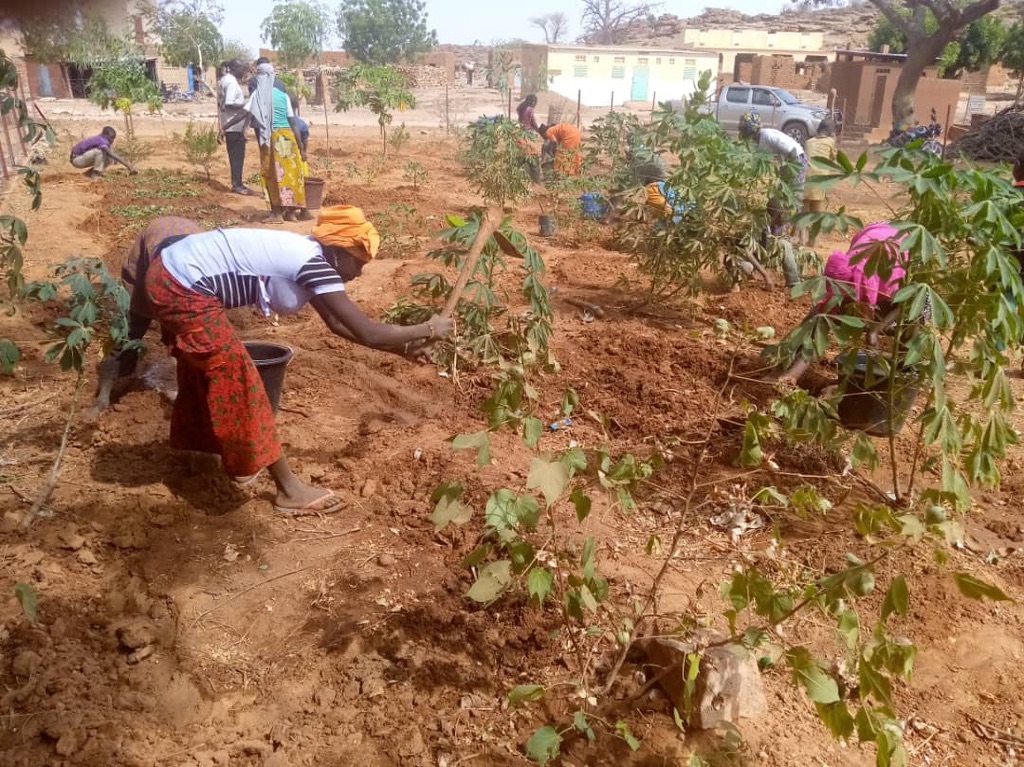
Sal Ogal School Garden, Mali
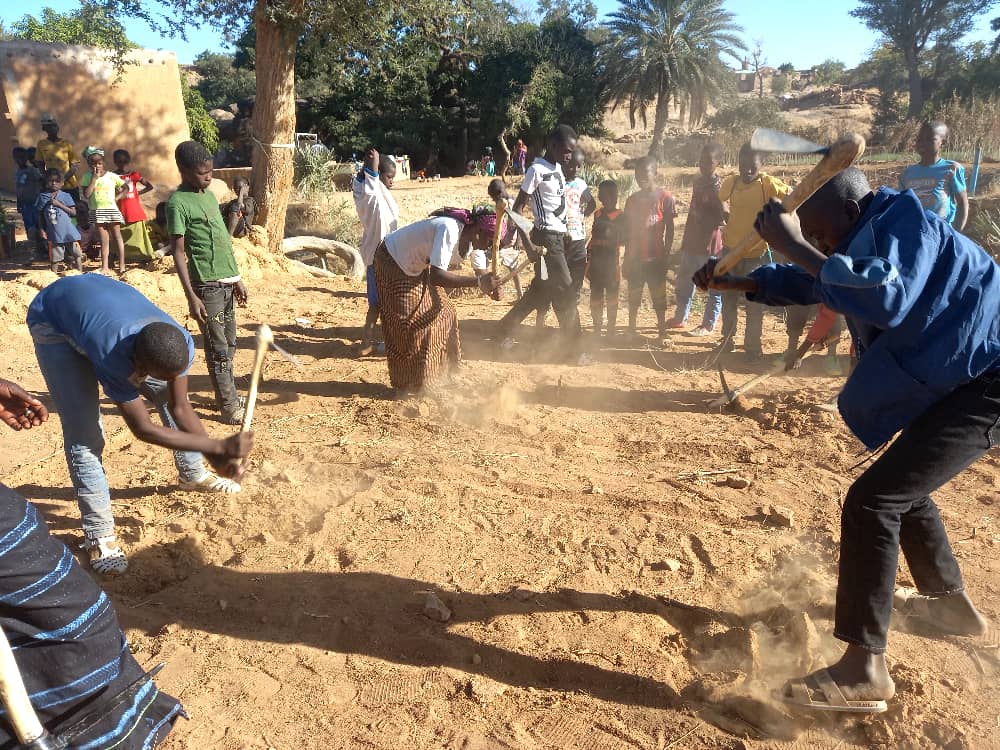

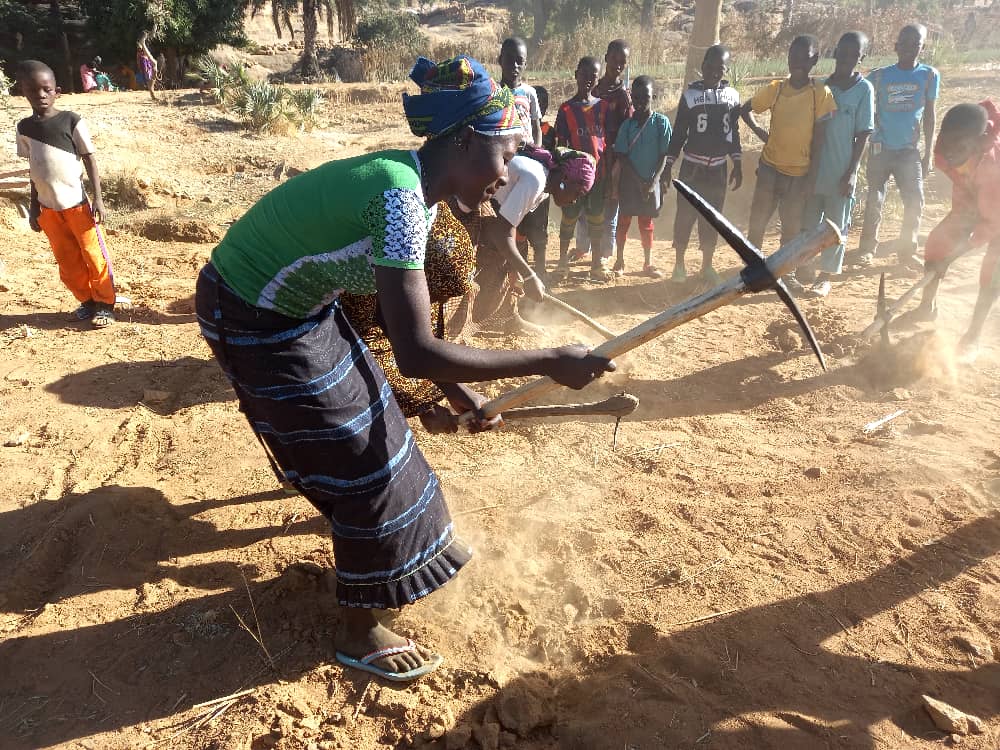
Tandana now supports school gardens in Sal Ogal.
Saredina School Garden, Mali

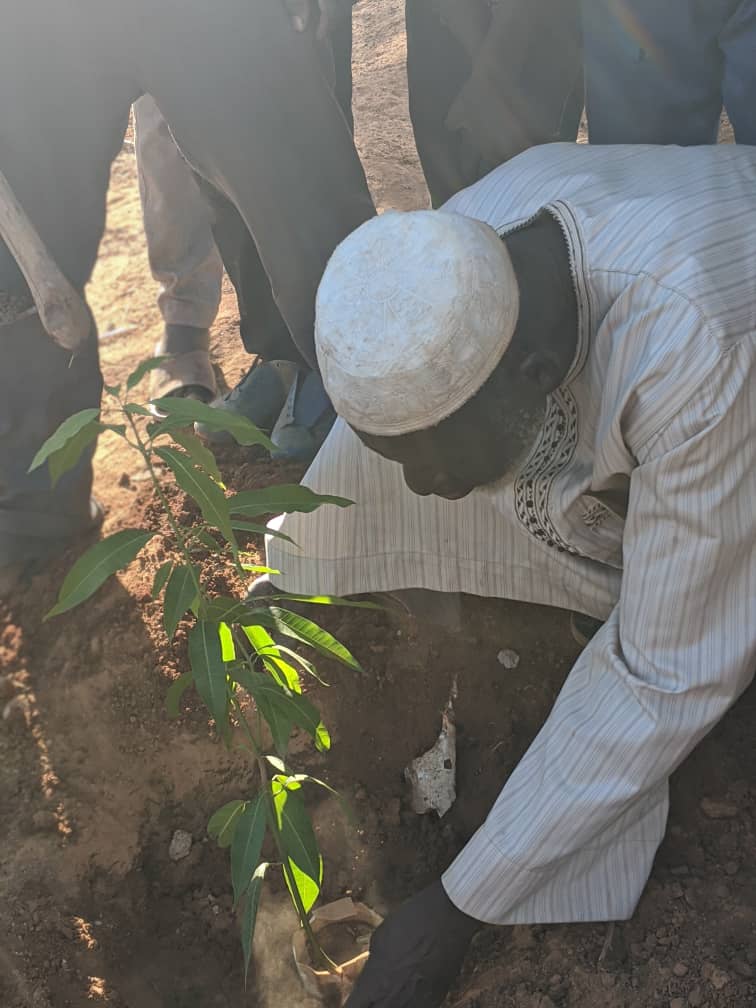
The school garden in Saredina is ready to go! The fence has been installed, the management committee has been selected, and students, teachers, and parents have participated in a training workshop on gardening techniques and management. The training hosted more participants than expected and they are now eagerly waiting for the plants to be ready for harvest.
Tegou School Garden, Mali
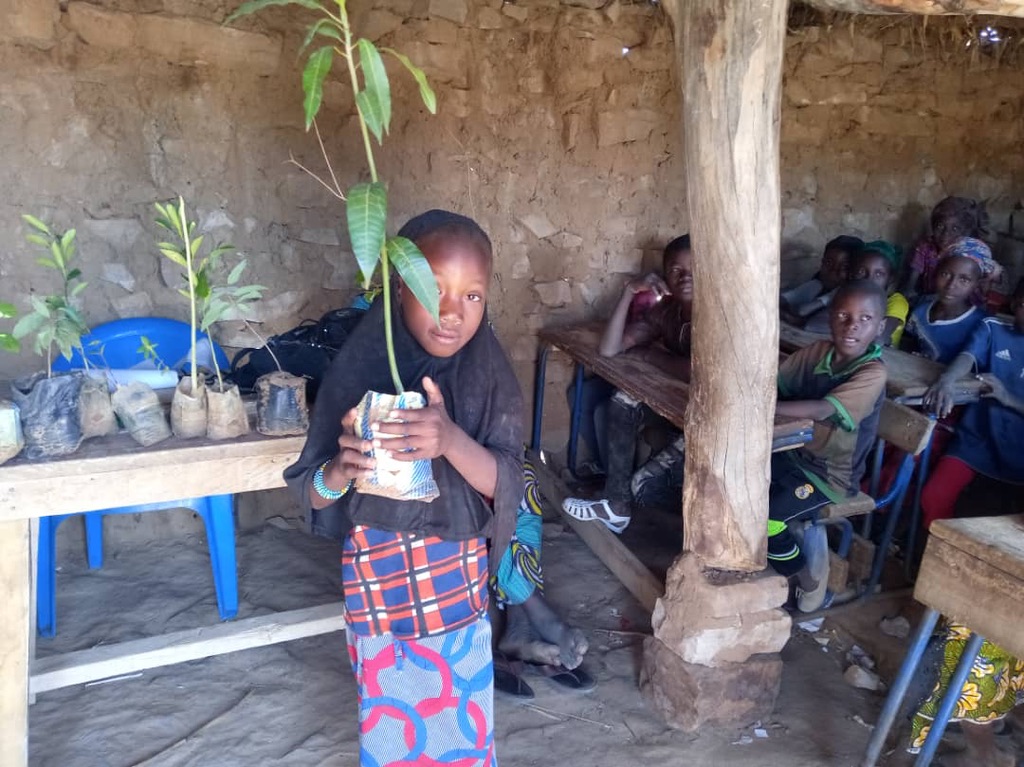
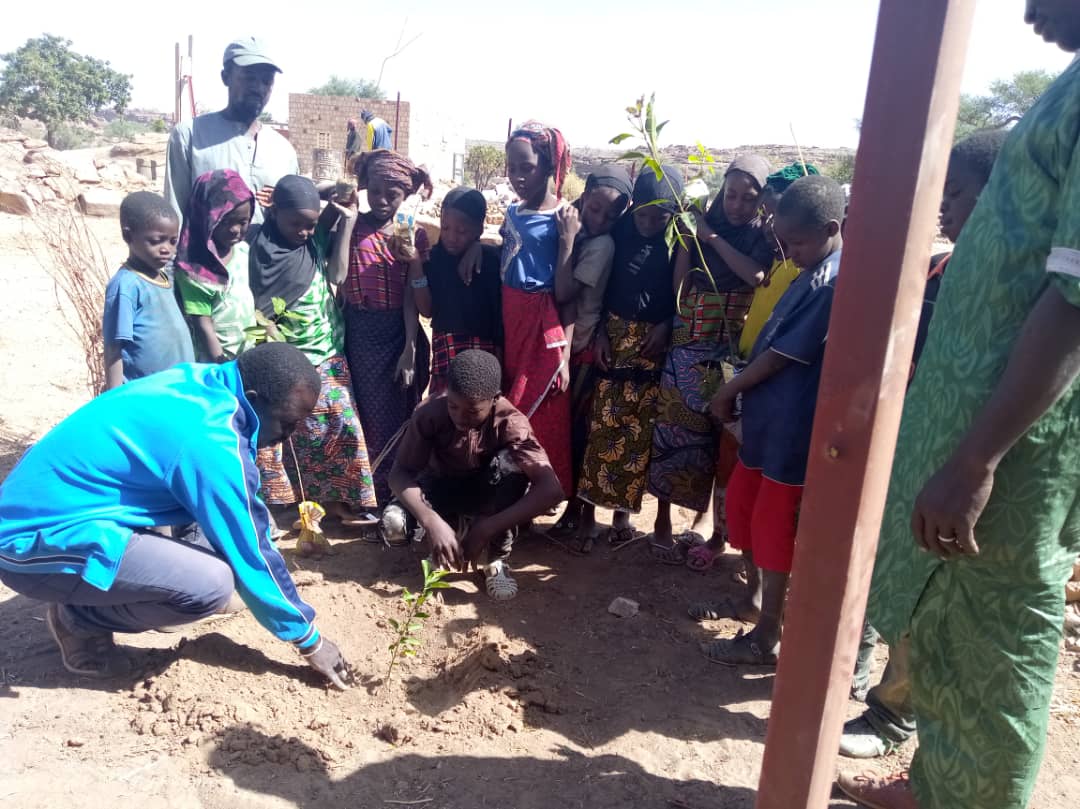
Tandana now supports school gardens in Tegou.
"Saminay - El Legado" High School in Inguincho, Ecuador
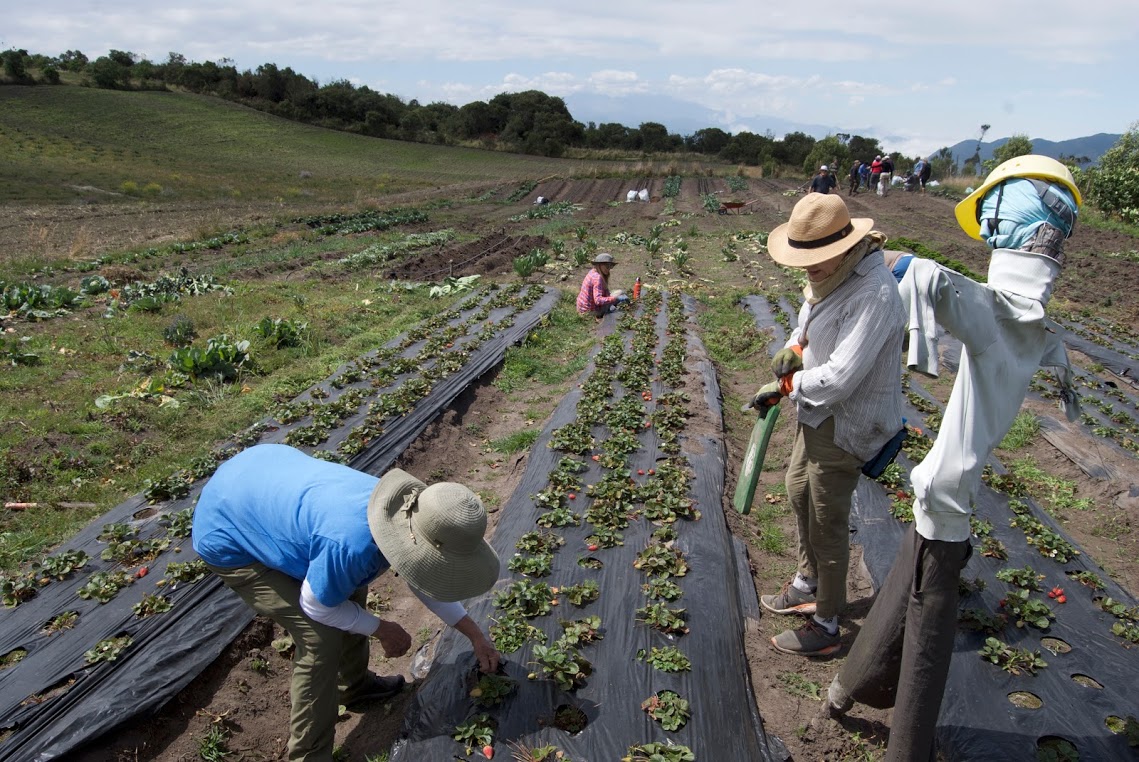
Motilón Chupa, Ecuador
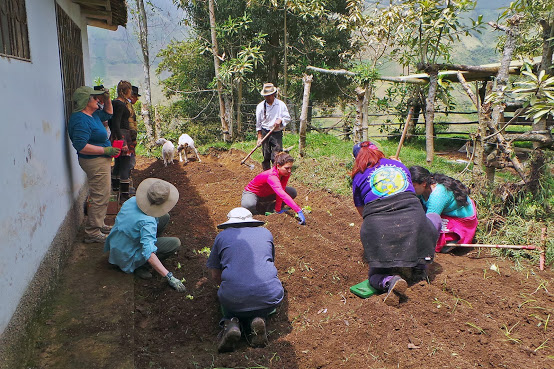
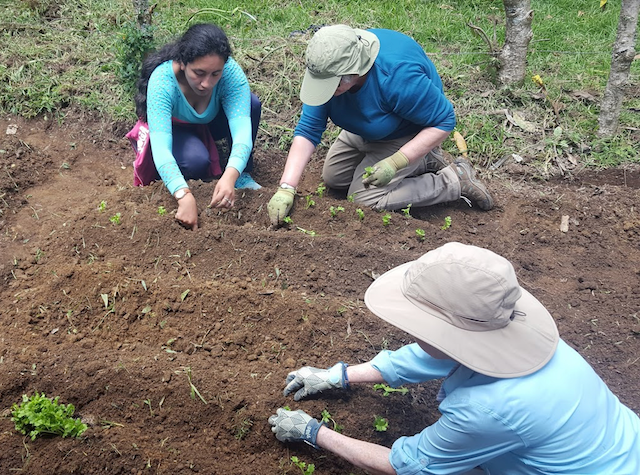
La Joya School, Otavalo, Ecuador
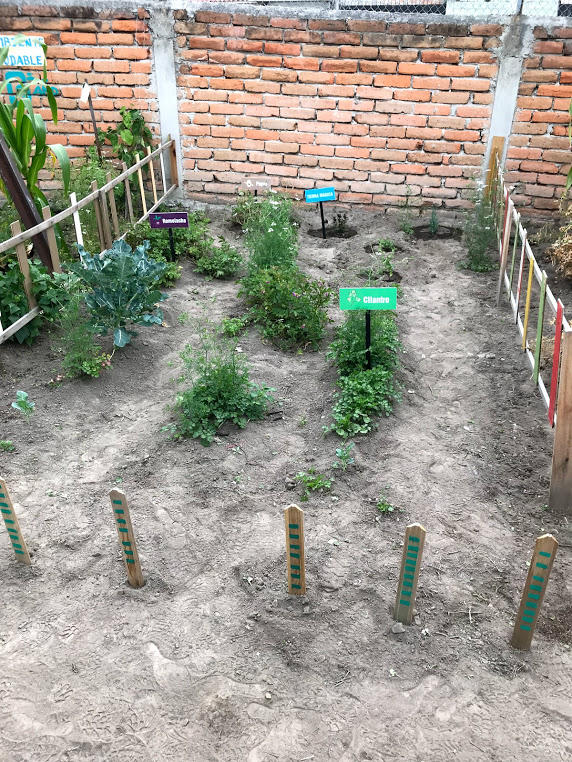
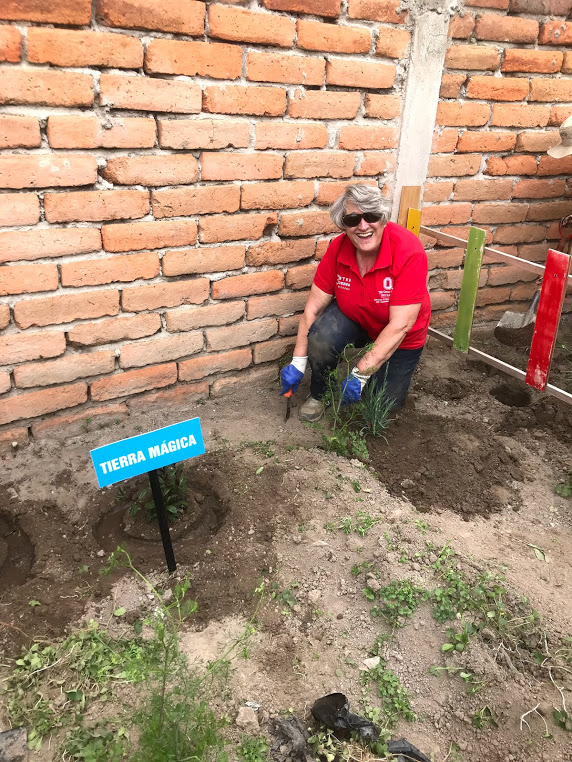

Padre Chupa, Ecuador

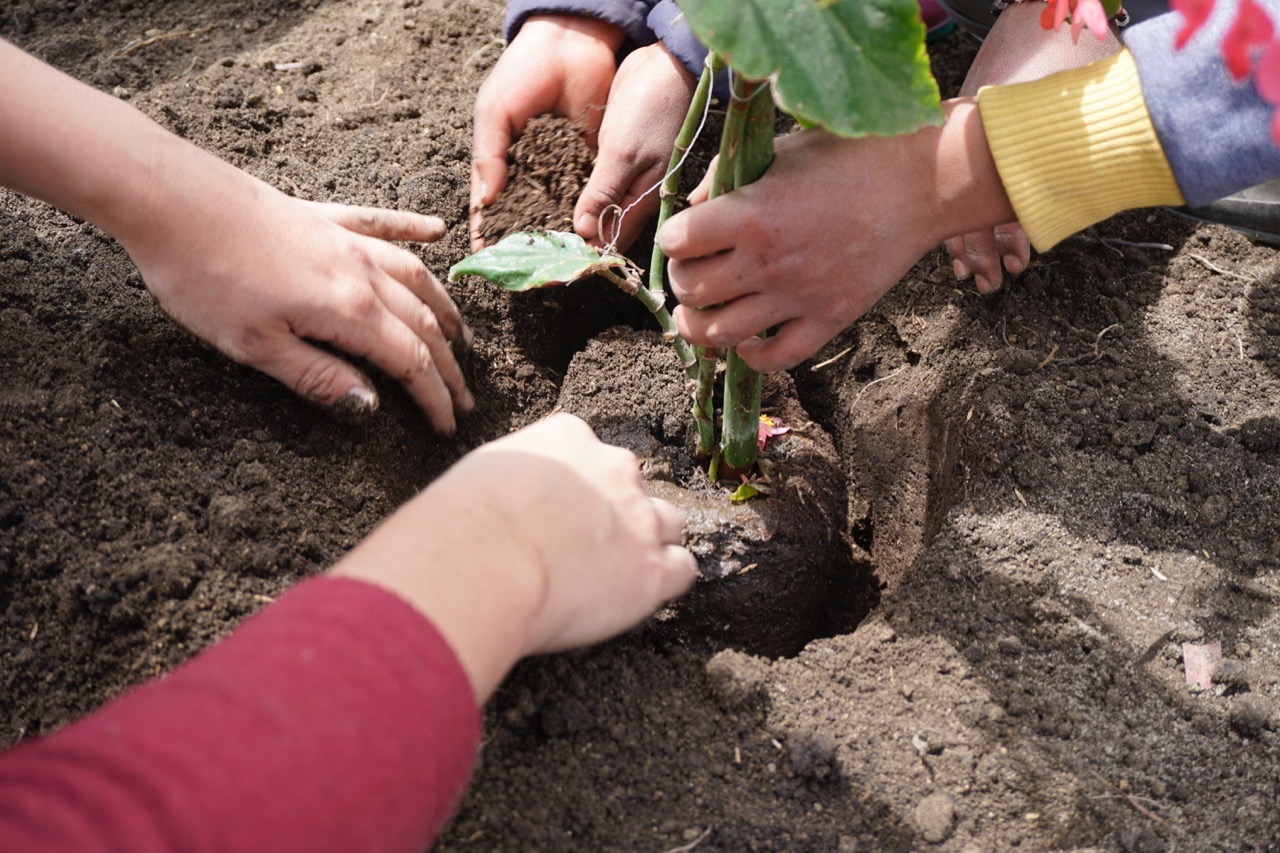
In 2010, we helped the Provincia de Tungurahua School in Padre Chupa, Ecuador create a school garden. Pilar Salazar, the director, wanted to teach her students about growing vegetables and also to add nutritional content and variety to their school lunches. The 8th grade class of Headwaters Academy spent a week in Padre Chupa and worked with parents and students to clear the area for the garden, build a fence to protect it from livestock, hoe the land, and plant cauliflower, carrots, broccoli, radishes, lettuce, and beets. Produce from the garden is complementing the simple lunches that the children eat at school. The students and their parents also plant staple crops such as potatoes and fava beans to produce food for lunches. For several years, Headwaters Academy has returned and again worked alongside the Padre Chupa students in the garden. Gustavo Yacelga, president of the parents' association, saw the importance of the garden and has kept it going after Pilar was moved to a different school.
Quichinche, Ecuador
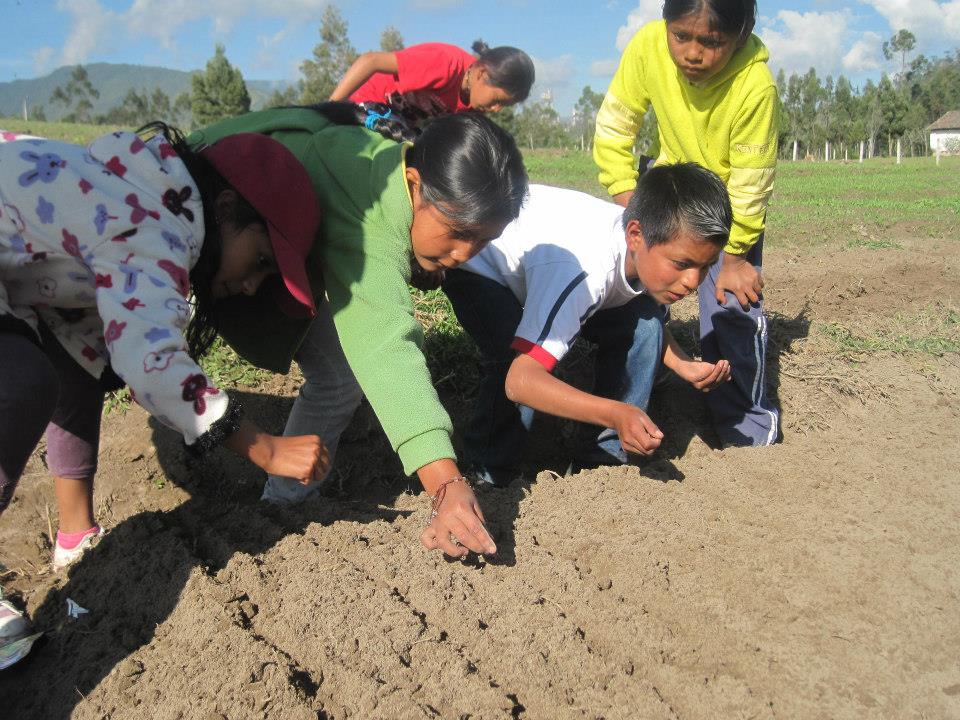
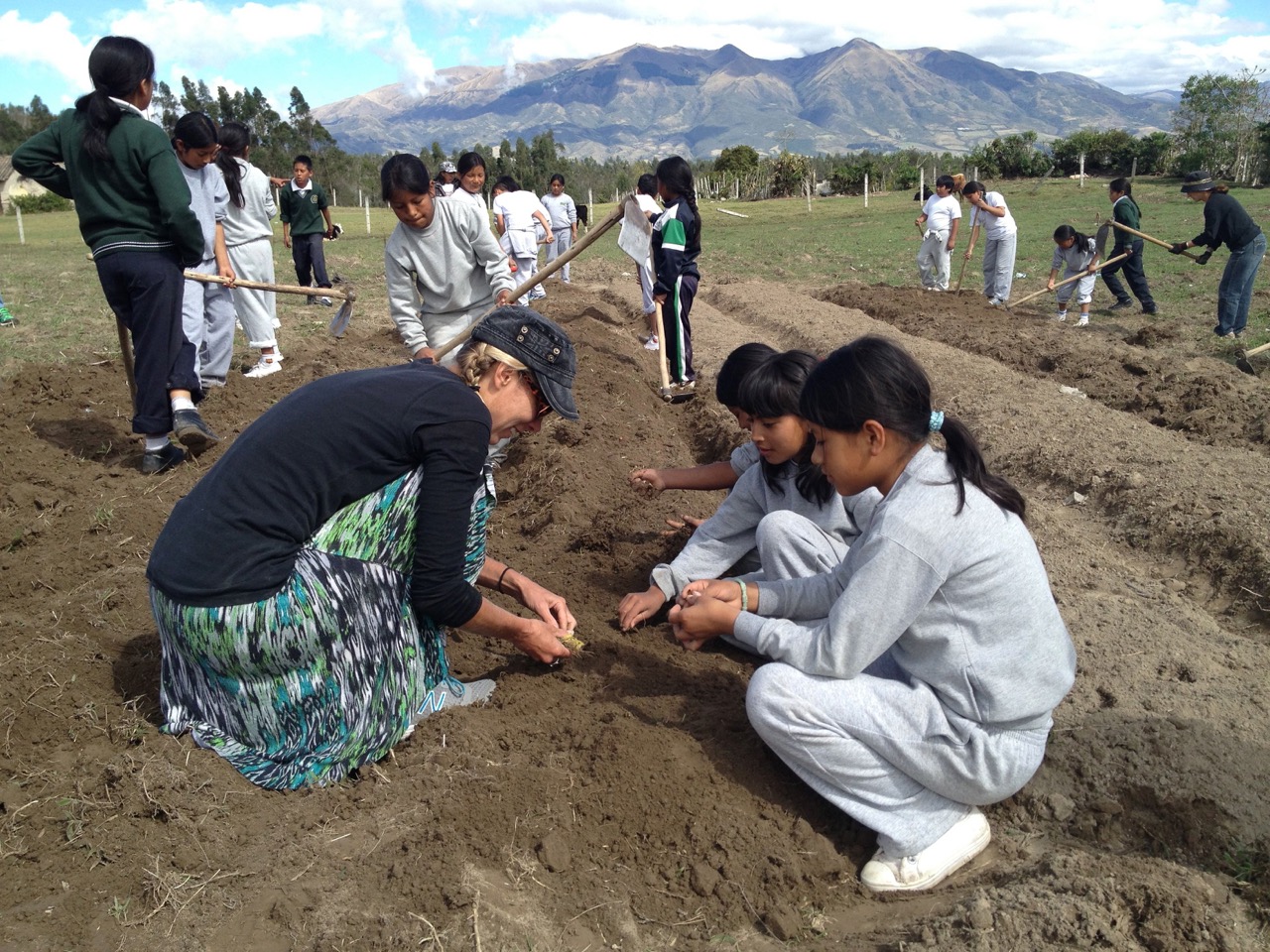
The Ulpiano Navarro School in Quichinche, Ecuador has a strong garden program that Tandana collaborates with. The teachers and students provide the initiative, and Tandana has helped with seeds, volunteer assistance, and plant-oriented lessons. For example, one Tandana volunteer wrote: This past November, the 7th-grade students of Quichinche’s school planted their school garden. Sounds funny to hear “planted a garden” and “November” in the same sentence, huh? Here on the equator, the growing season is year-round and November is at the beginning of the rainy season. They planted carrots, radishes, lettuce, cabbage, cilantro, parsley, and spinach. The teacher Alfredo Flores is wonderful to work with and the children are just joyous to be around. Imagine kids in the USA begging you to harvest some carrots? With 31 pairs of hands, the weeding gets done in a flash! Also, the same students recently planted 200 trees native to Ecuador with the Tandana Master Gardener volunteers who were visiting for a week. Great work!!!
Perugachi, Ecuador
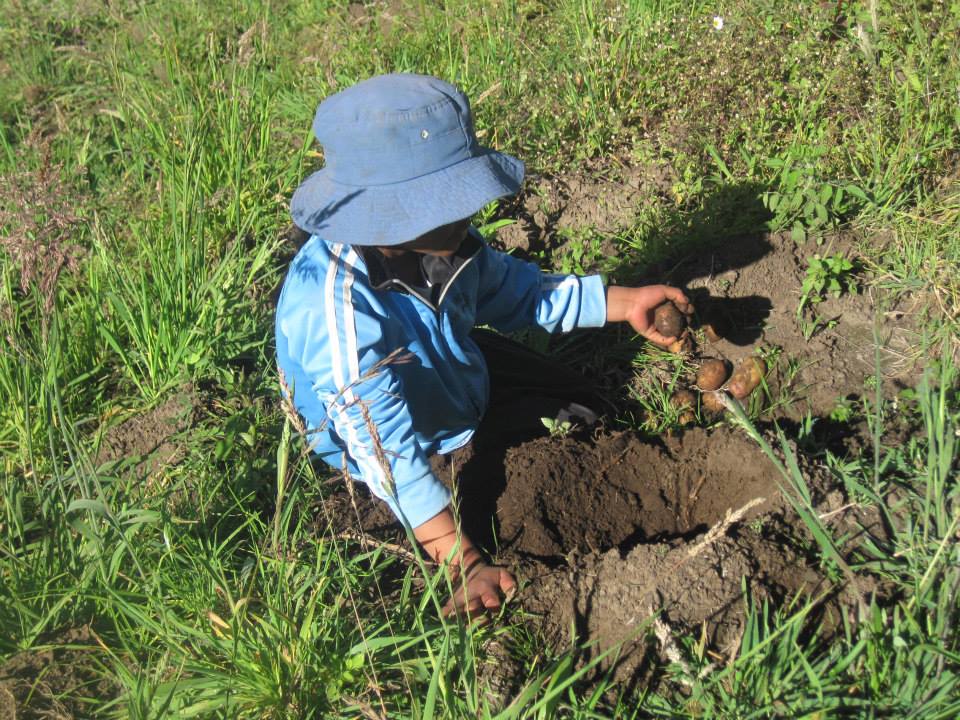
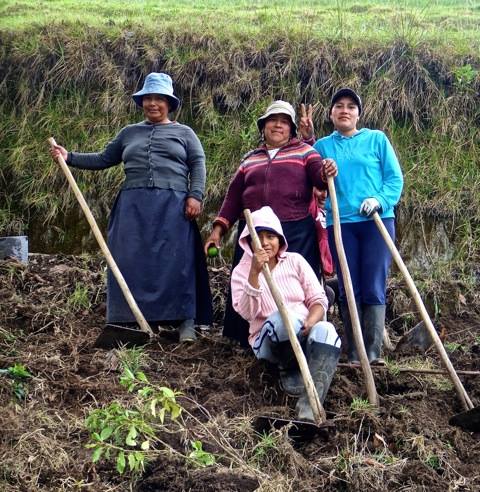
After changing locations for the 2013-2014 school year, Escuela Fernando Daquilema in Perugachi embarked on a gardening project in the backyard of the school. The students and madres de familia, led by the School Director Pilar Salazar, joined together to make this possible, planting potatoes, fava beans, corn, and beans. The food, which was ready to harvest in the spring season, is supplementing the students' daily snack. In addition to tending to the garden, students also planted trees in the fall which, with the students' care and a little bit of rain, have already grown substantially.
Guachinguero, Ecuador
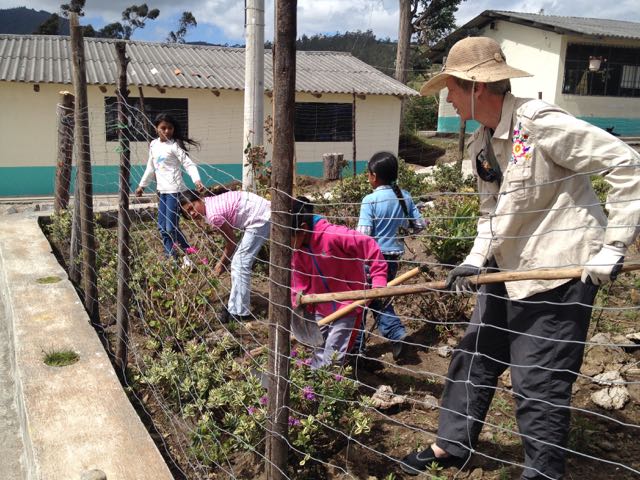
The school in Guachinguero, Ecuador has several gardens, some for ornamental plants and others for food crops. Tandana has collaborated with the students, teachers, and parents on these gardens, providing seeds and fencing materials. Tandana gardening volunteers have worked alongside local students and parents to build fences, plant flowers and shrubs, and sow quinoa. The gardens both beautify the school grounds and provide nutritious food for school lunches.
Horticulture Workshops, Mali
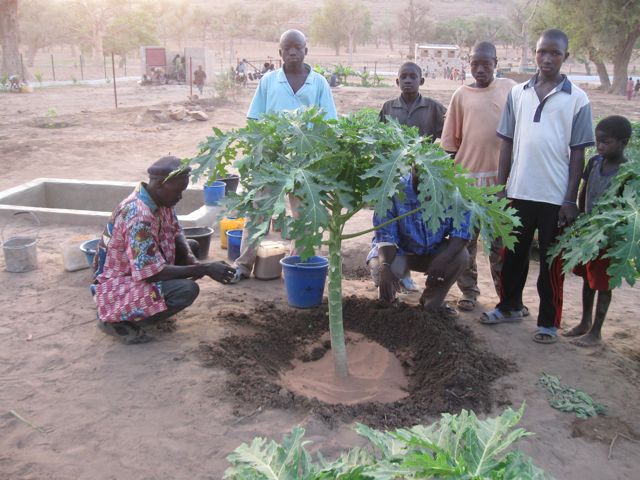

Grain Banks
 | "Thanks to this support, we were able to cultivate our fields on time and the harvest was favorable and the grain bank fund was increased by 1,600,000 FCFA. What a joy for the villagers, those who work in the bank, and The Tandana Foundation. Thank you to all the donors. Here, millet has the same value as gold, which tells you that your action was appreciated by all the villagers at the value of gold. The happiness that The Tandana Foundation has brought us is like fresh water that gives strength to the fish. . . . Long live the friendly cooperation between The Tandana Foundation and the village of Kansongho, and thank you infinitely." |
Kansongho, Mali
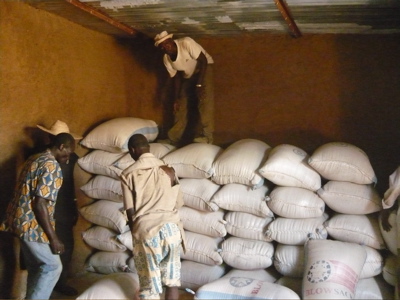
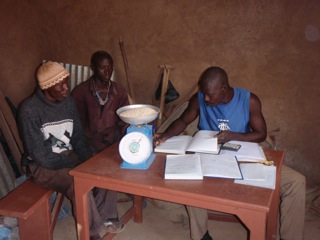
The community members of Kansongho, Mali live mostly by subsistence farming of millet and peanuts. Yet with the decreasing rainfall in recent years, they are having a hard time growing enough food to last until the next harvest. To respond to the problem of food security in the region, the community members decided to start a grain bank. The Tandana Foundation helped with materials for the storehouse and stocked the bank the first year with 20 tons of millet and half a ton of rice. This grain was sold throughout the year at a constant price, much less than the sky-high levels the market price reaches during the rainy season. Proceeds from each year's sales are used to purchase more grain immediately after the next harvest at the annual low price. Thus, a revolving stock of grain is available for purchase in the village at an affordable price. As families run out of food, they are able to buy it little by little and feed their children.
Participants in our Mali Volunteer Vacation helped the community members construct the building to house the grain bank. The village has elected a committee to manage the grain bank's operations. Two participants from the volunteer vacation went home and raised enough money to add 16 more tons of millet to the bank, which was important because that year the harvest was especially poor.
Sal-Dimi, Mali
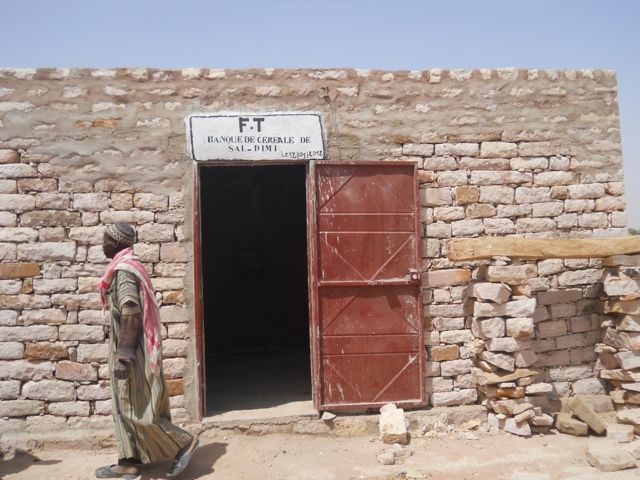
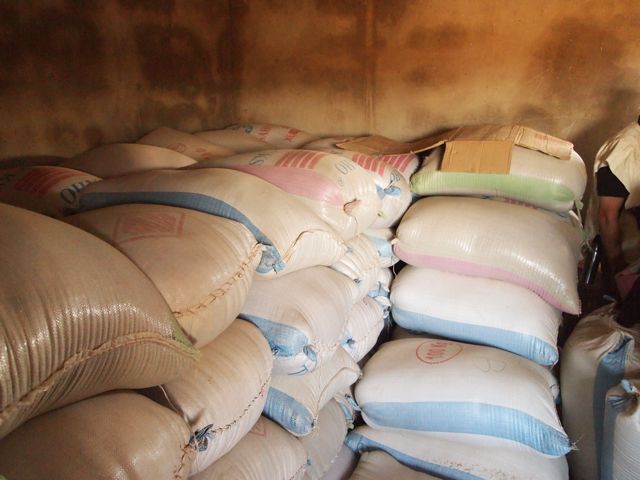
 Mali Volunteer Vacation helped residents construct the building to house the grain bank. The village has elected a committee to manage the grain bank's operations. In the first year, the stock was sold out twice and replenished, as residents came from all around to buy at the bank. The committee has done an excellent job of managing the stock and funds so that the bank can continue to provide affordable grain into the future.
Mali Volunteer Vacation helped residents construct the building to house the grain bank. The village has elected a committee to manage the grain bank's operations. In the first year, the stock was sold out twice and replenished, as residents came from all around to buy at the bank. The committee has done an excellent job of managing the stock and funds so that the bank can continue to provide affordable grain into the future. Dologou, Mali
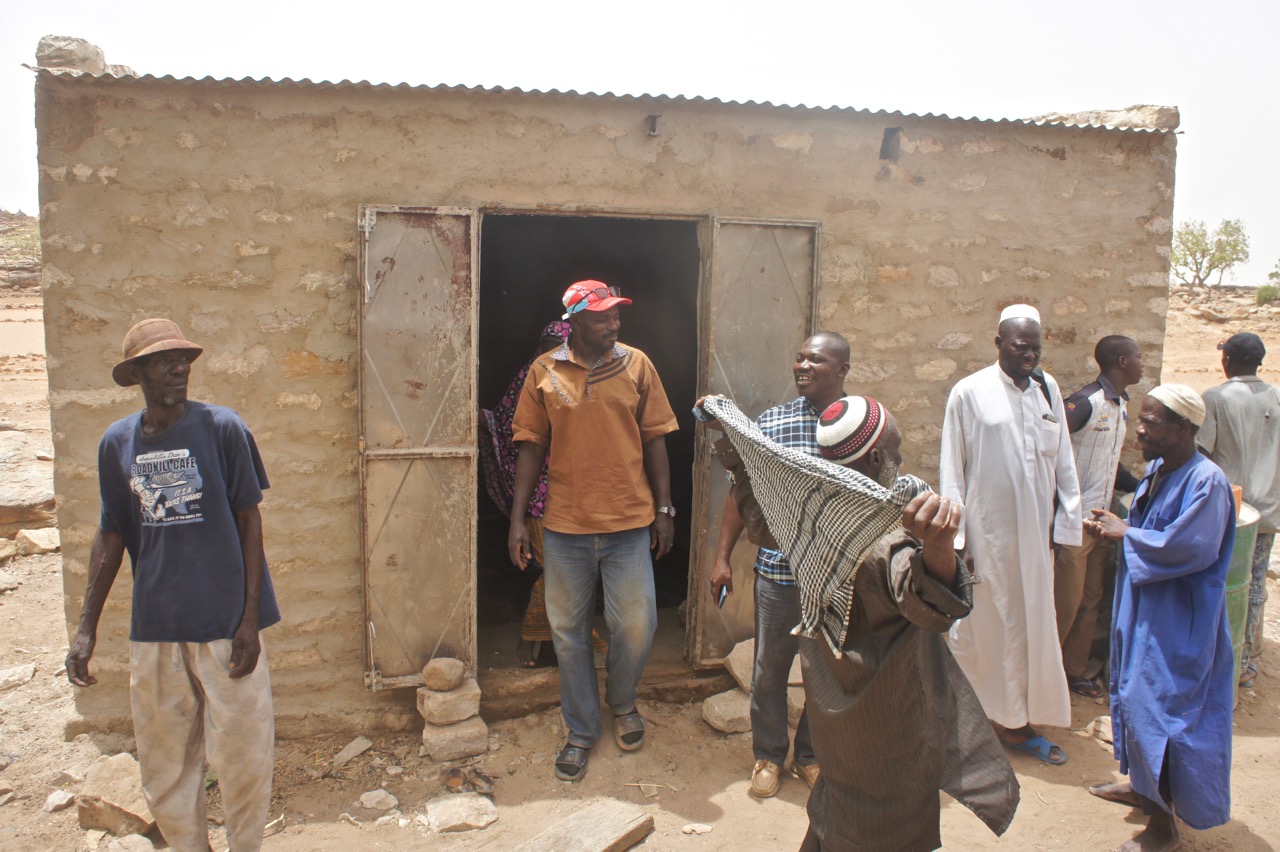
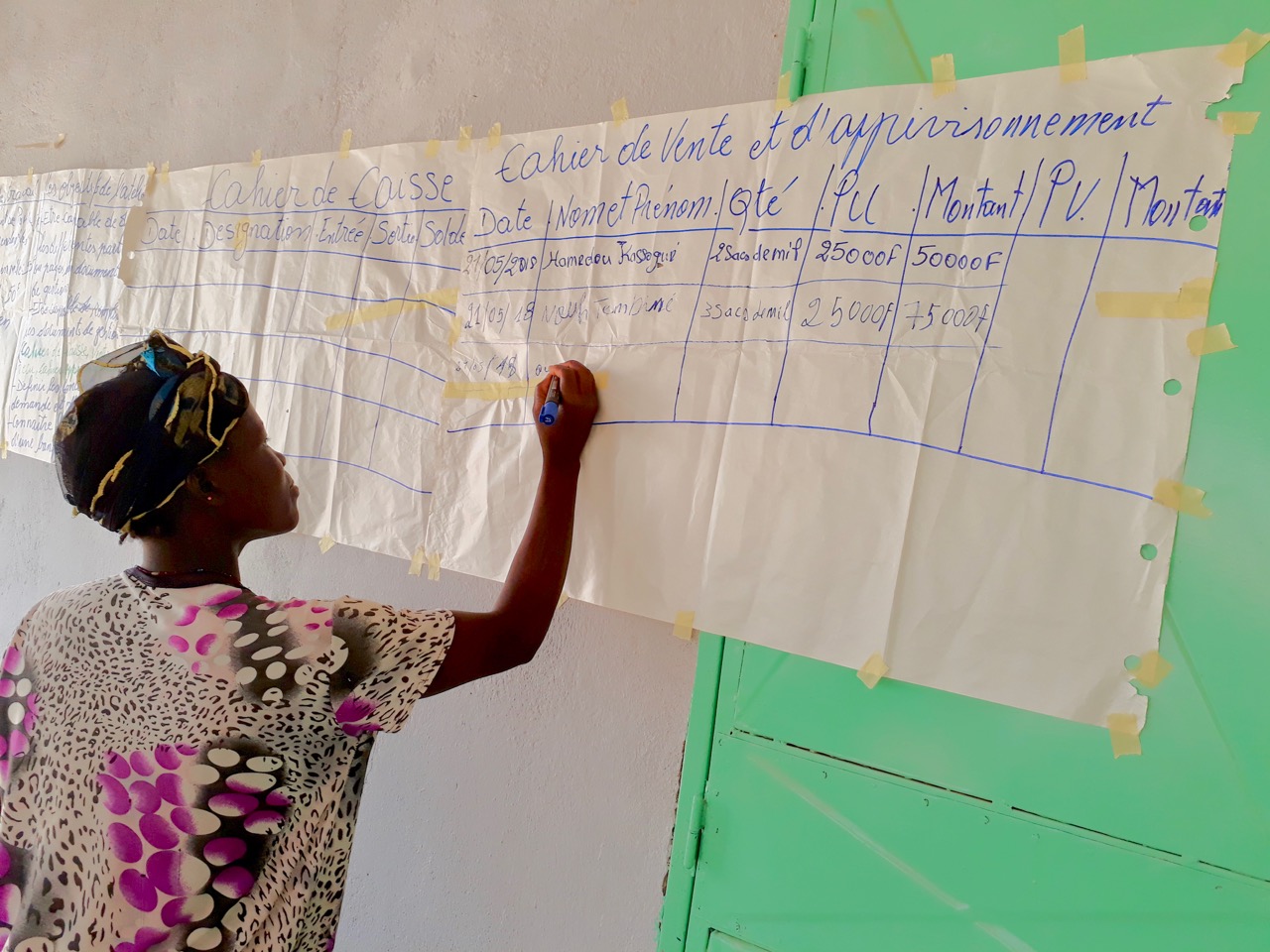
Nounou, Mali
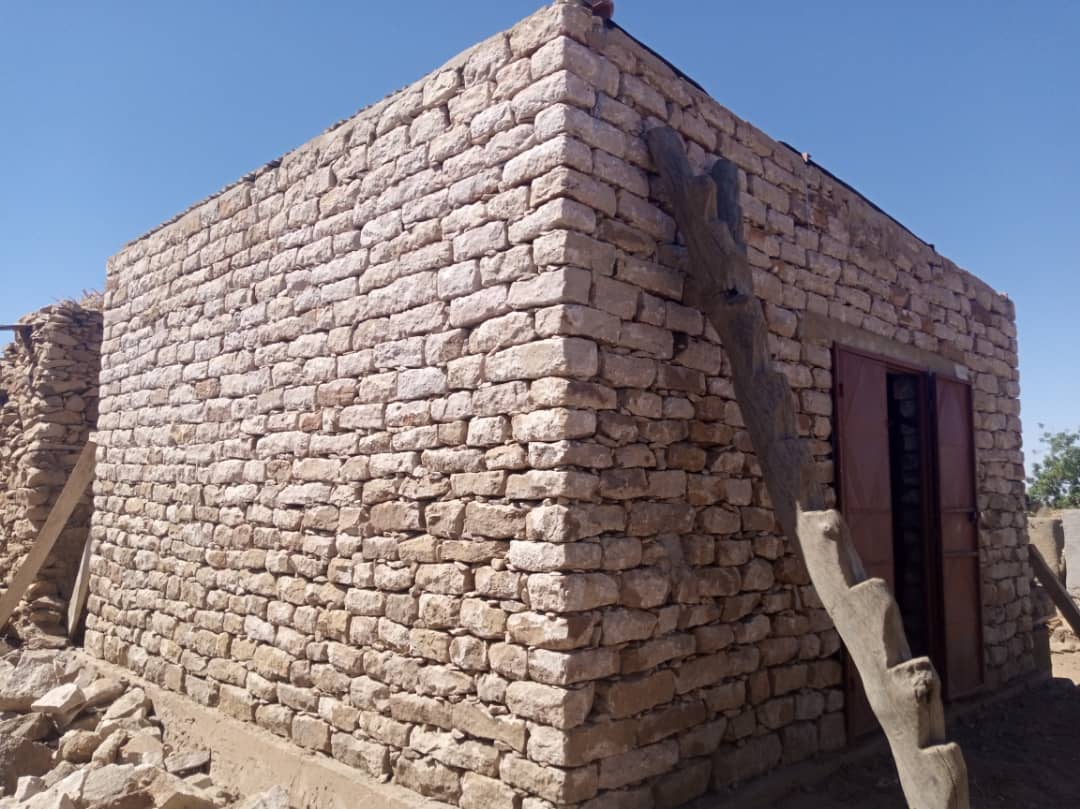
Bolmo, Mali

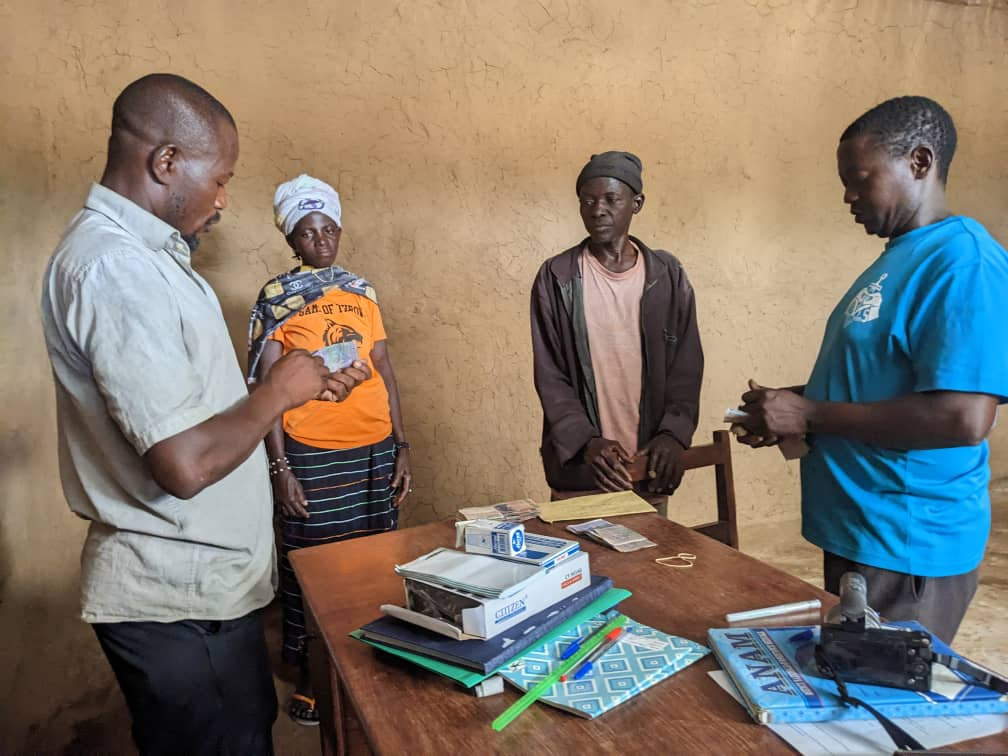
The grain bank in Bolmo is up and running! The management committee received their training and tools, and the bank is now functioning, making millet available at an affordable price in the village.
Moe, Mali

The new grain bank in Moe has opened for business. An inauguration ceremony was held and on the same day the first millet was sold from the bank, the residents of Moe expressed joy that their long-awaited dream of a grain bank had become a reality.
Orossegou, Mali

Members of the management committee for the new grain bank in Orossegou participated in training in preparation to lead the bank.
Peer-to-peer Learning
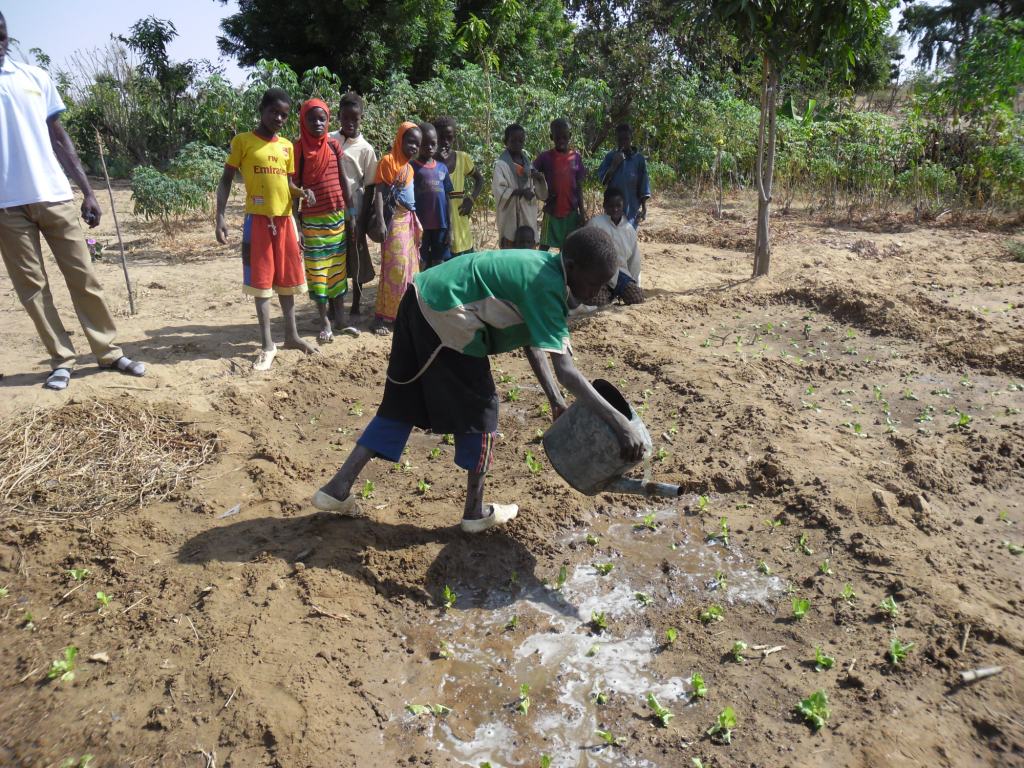
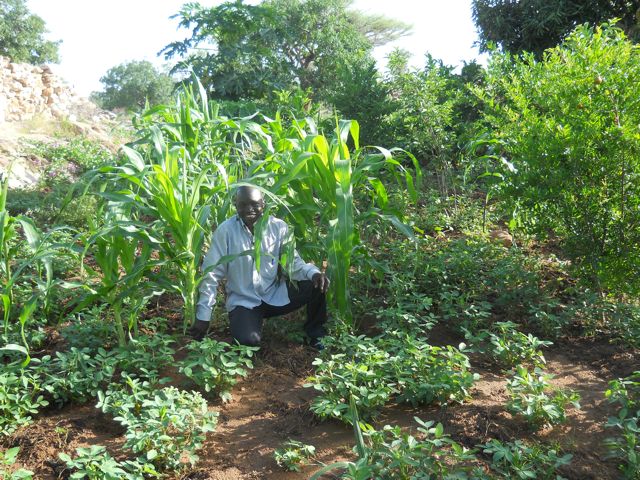
Unlike many other organizations who present themselves as experts with superior (that is, Western) scientific knowledge and techniques which are necessary for agricultural innovation, Tandana believes in the power of peer-to-peer learning. To facilitate this sharing process, Tandana organized an exchange visit for community members from Kansongho and Sal-Dimi to learn from those in Ende who have been very successful in protecting and encouraging the natural regeneration of trees in their fields (RNA), which improves soil fertility and stability. The community members in Ende showed the visitors how they prune the trees so that they grow tall and their leaves can fertilize the fields without blocking out sunlight needed for the millet. They explained how they formed an association of eight villages and developed thorough processes for protecting the trees from illegal cutting. After a decade of caring for the trees in their fields, they say they can fulfill all of their firewood needs through pruning. The visitors from Kansongho and Sal-Dimi returned home, reported on their visit, and discussed what they saw with people from neighboring villages as well, deciding to create their own association, Olouguelemo.
